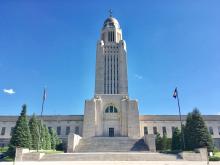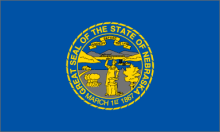Nebraska Lawmaker Looks to Shuck Muni Broadband Restrictions - Again
Even as high-speed Internet access is widely considered a basic utility akin to electricity and clean water, there are still 17 states with preemption laws that either ban publicly-owned broadband networks or have barriers that make it all but impossible for municipalities to compete with monopoly Internet Service Providers. This, despite the major incumbents having received billions in taxpayer subsidies over the years and having failed to deliver universally reliable and affordable connectivity.
However, as it has become increasingly clear that the private market alone is not going to solve America’s connectivity crisis, last year two states (Arkansas and Washington) rolled back their preemption laws that were protecting monopoly incumbent providers from competition, allowing local and regional governmental entities to build the telecommunications infrastructure their residents need.
Now, one Nebraska lawmaker has recently filed a bill that, if passed, would significantly remove his state’s current barriers to municipal broadband. Nebraska State Sen. Justin Wayne of Omaha filed LB916 last week with the state legislature’s Transportation and Telecommunications Committee.
As it stands now, according to the Coalition for Local Internet Choice (CLIC), Nebraska “generally prohibits agencies or political subdivisions of the state, other than public power utilities, from providing wholesale or retail broadband, Internet, telecommunications or cable service. Public power utilities are permanently prohibited from providing such services on a retail basis, and they can sell or lease dark fiber on a wholesale basis only under severely limited conditions. For example, a public power utility cannot sell or lease dark fiber at rates lower than the rates incumbents are charging in the market in question.”
Bill to Let Local Communities Decide on Broadband



